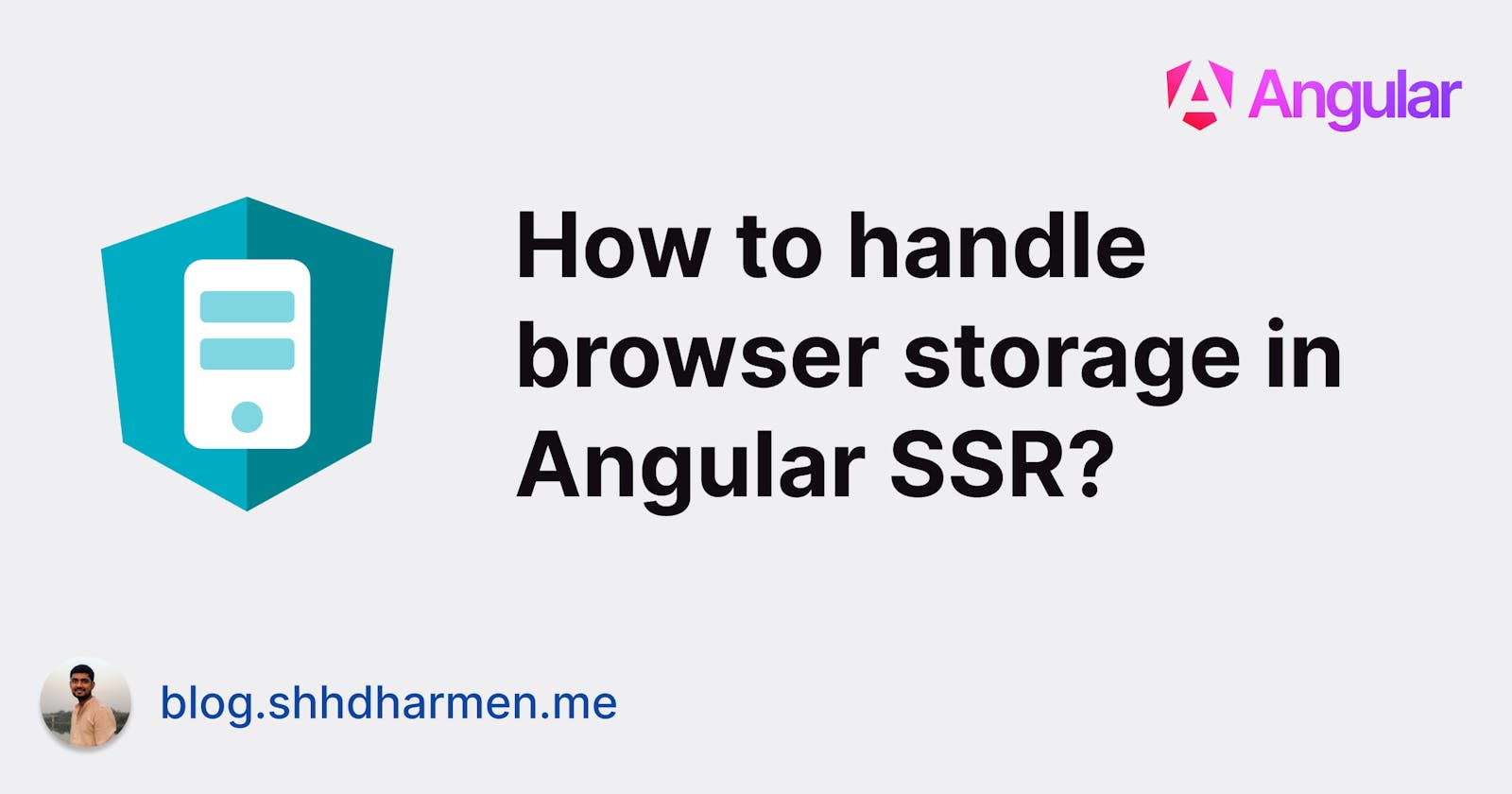How to handle browser storage in Angular SSR?
In this quick tutorial, we will learn best way to handle browser storage with Angular SSR
Server-side applications may not have access to certain browser APIs and features. They are unable to utilize browser-specific global objects such as window, document, navigator, or location, and certain HTMLElement properties.
Typically, code that depends on symbols specific to a browser should be run only in the browser, not on the server. This can be ensured using the lifecycle hooks afterRender and afterNextRender. These hooks are executed only in the browser and are bypassed on the server.
But, in some cases, afterRender or afterNextRender are not helpful. For example, when you want to use localStorage in services.
Let's see how we can handle such scenario in a step-by-step guide.
1. A service to use browser storage for Browser
Let's create a BrowserStorageService with below content:
import { Inject, Injectable, InjectionToken } from '@angular/core';
export const BROWSER_STORAGE = new InjectionToken<Storage>('Browser Storage', {
providedIn: 'root',
factory: () => localStorage,
});
@Injectable()
export class BrowserStorageService {
constructor(@Inject(BROWSER_STORAGE) public storage: Storage) {}
get(key: string) {
return this.storage.getItem(key);
}
set(key: string, value: string) {
this.storage.setItem(key, value);
}
remove(key: string) {
this.storage.removeItem(key);
}
clear() {
this.storage.clear();
}
}
As you can see, we have created a service to handle browser storage.
2. Provide service to whole browser application
Now, add BrowserStorageService in providers array of your app.config.ts if you are using standalone mode or in app.module.ts if you are using module mode.
providers: [BrowserStorageService],
Now, instead of using localStorage directly, use BrowserStorageService everywhere in your whole application.
Please note that we have not yet handled the server-side implementation. If you try to build the project, you will get error similar to below:
ERROR ReferenceError: localStorage is not defined
Let's fix that.
3. A service to use browser storage for Server
Now, server don't have any global variables like localStorage and hence it fails when it runs the application with BrowserStorageService
The idea is to provide an implementation to server-side code, so that it works without breaking.
Let's create another service called BrowserStorageServerService with below content:
import { Injectable } from '@angular/core';
import { BrowserStorageService } from './browser-storage.service';
@Injectable()
export class BrowserStorageServerService extends BrowserStorageService {
constructor() {
super({
clear: () => {},
getItem: (key: string) => JSON.stringify({ key }),
setItem: (key: string, value: string) => JSON.stringify({ [key]: value }),
key: (index: number) => index.toString(),
length: 0,
removeItem: (key: string) => JSON.stringify({ key }),
});
}
}
As you can see, we have extended BrowserStorageServerService from BrowserStorageService, so that we can easily override the methods.
This is just a mock service, it's important to have all the methods in place, implementation doesn't matter, you can change as you like.
4. Provide service to whole server application
Now, we will have to tell server to use BrowserStorageServerService whenever it gets instance of BrowserStorageService. It can be easily done by provide and useClass properties of ClassProvider.
Update the providers array of your app.config.server.ts if you are using standalone mode or in app.server.module.ts if you are using module mode:
providers: [
{
provide: BrowserStorageService,
useClass: BrowserStorageServerService,
},
],
Thats it! Now your application should run fine.

